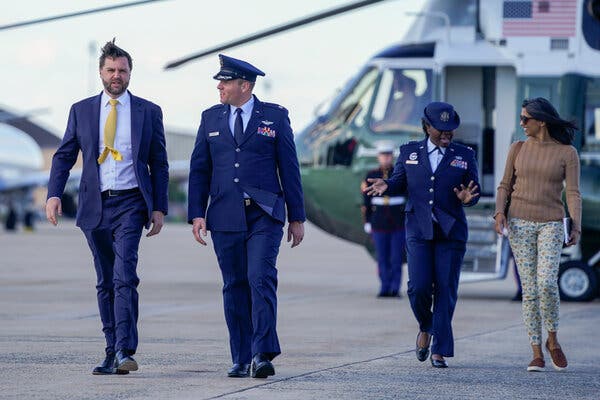Vice President JD Vance is set to arrive in Israel on the morning of October 17, 2023. His visit comes as the Trump Administration seeks to reinforce a fragile cease-fire agreement in Gaza. This truce, established earlier this month, marked a significant development in the ongoing conflict between Israel and Hamas.
The cease-fire was brokered with considerable effort, culminating in a prisoner exchange where Hamas released 20 Israeli hostages, while Israel freed nearly 2,000 Palestinian prisoners. Despite these developments, the peace remains precarious. Vance’s trip will last until October 19, 2023, and he will engage in discussions with Israeli leaders about security and diplomatic strategies.
Recent violence has put additional pressure on the cease-fire. On October 15, Palestinian militants attacked Israeli soldiers in the southern Gaza city of Rafah, resulting in the deaths of two soldiers. In retaliation, Israel conducted airstrikes that reportedly killed 45 Palestinians, according to health officials in Gaza. Although this surge in violence was brief, analysts caution that the cease-fire will face further challenges.
During a speech at the Knesset, Israel’s Parliament, Prime Minister Benjamin Netanyahu highlighted the dual focus of his upcoming discussions with Vance. “We will talk about two things, mainly the security challenges and the diplomatic opportunities we face,” Netanyahu stated. He expressed confidence in overcoming obstacles and seizing opportunities.
Vance will join other key figures, including Steve Witkoff, the Middle East envoy, and Jared Kushner, President Trump’s son-in-law, who are already in Israel to monitor the situation. Their roles were crucial in facilitating the cease-fire discussions, working alongside mediators from Egypt, Qatar, and Turkey.
The vision for Gaza’s future remains ambitious but contentious. The Trump Administration aims for a scenario where Hamas disarms, an international force oversees security, and an independent Palestinian administration is established. However, Hamas has voiced significant reservations regarding disarmament, complicating the path forward.
Both parties have yet to fulfill critical components of the cease-fire agreement. Notably, the return of 15 hostages’ remains, which Hamas is obligated to deliver, has yet to occur. Hamas officials have indicated that the extensive destruction from two years of conflict has hindered their ability to recover the bodies.
Israeli leadership, including Netanyahu, has accused Hamas of breaching the cease-fire by delaying the return of these remains. In response, Israel has kept the Rafah crossing between Gaza and Egypt closed indefinitely, despite the cease-fire calling for its reopening. This crossing is vital for allowing civilians to travel in and out of Gaza, an opportunity they have been denied for several months.
As Vance’s visit unfolds, the international community will be closely watching how U.S. diplomatic efforts may influence the stability of the cease-fire and the broader implications for peace in the region.
